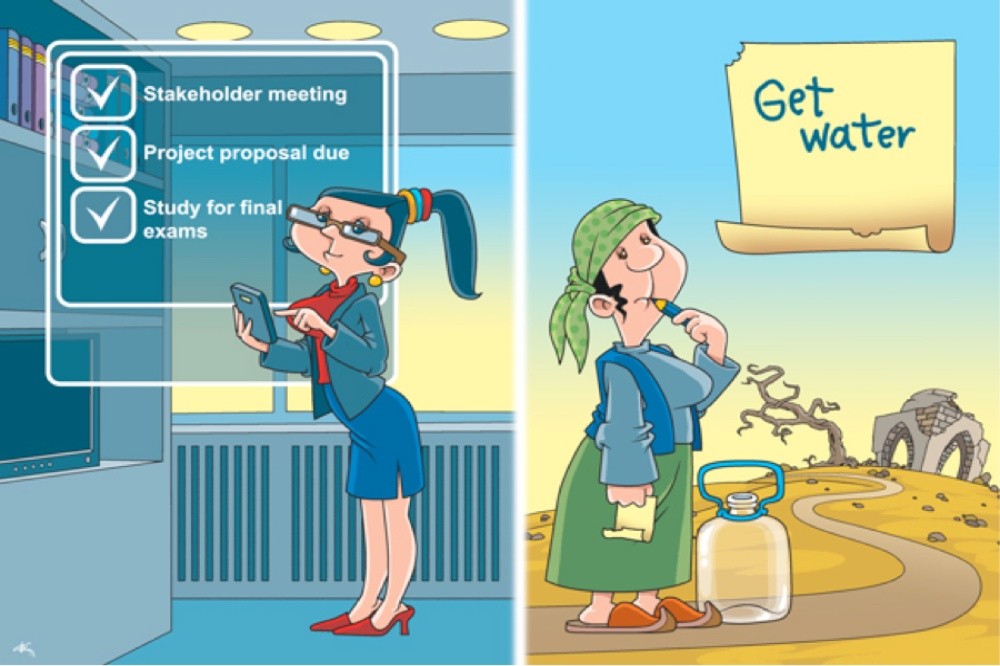
Systematic Review of Water & Sanitation and Gender Interlinkages: Empowering Women, Transforming Communities
Introduction:
Water and sanitation are fundamental human rights that significantly impact public health, gender equality, and community development. Recognizing the critical interplay between water, sanitation, and gender is essential for designing inclusive policies and sustainable solutions. In this article, we delve into a systematic review of the interlinkages between water and sanitation initiatives and their impact on gender equality, shedding light on the transformative potential of empowering women in water-related sectors.
1. Improving Women's Health and Hygiene:
Studies consistently demonstrate that access to clean water and sanitation facilities plays a vital role in improving women's health and hygiene. With better access to clean water, women are at a reduced risk of waterborne diseases and infections. Improved sanitation facilities, particularly during menstruation, not only enhance personal hygiene but also enable women to participate fully in social and economic activities. A systematic review conducted by the World Health Organization (WHO) found that investing in water and sanitation infrastructure led to a significant reduction in maternal and child mortality rates in various regions.
2. Enhancing Economic Empowerment:
Access to water and sanitation services can break the cycle of poverty and enhance women's economic empowerment. In rural communities, where women are primarily responsible for water collection, improved access to clean water sources reduces the time burden on women, providing them with opportunities to pursue education and income-generating activities. Studies by the United Nations Development Programme (UNDP) highlight that every $1 invested in water and sanitation can yield up to $12 in economic benefits, primarily driven by increased productivity and reduced healthcare costs.
3. Gender-Responsive Water Governance:
Gender-responsive water governance is a crucial aspect of equitable and sustainable water management. Inclusive decision-making processes, where women have equal representation and participation, result in more holistic and context-specific water policies. A systematic review conducted by the International Water Management Institute (IWMI) found that women's involvement in water governance positively correlated with increased water efficiency, community engagement, and enhanced water access.
4. Women as Agents of Change in Water Management:
Women's active participation in water management fosters innovation and resilience. A systematic review published in the Journal of Water, Sanitation, and Hygiene for Development emphasized that women's inclusion in water management committees led to a more comprehensive understanding of water-related challenges and the development of context-specific solutions. Women's intimate knowledge of community needs and local water usage patterns uniquely positions them as agents of change in shaping sustainable water initiatives.
5. Addressing Water and Sanitation Disparities:
Gender disparities in water and sanitation access persist globally. However, evidence from a systematic review by the United Nations International Children's Emergency Fund (UNICEF) highlights that gender-sensitive water and sanitation programs can effectively address these disparities. Targeted interventions, such as female-led hygiene awareness campaigns and women-centered sanitation facilities, have shown to improve water and sanitation access for vulnerable populations, including women and girls.
Conclusion:
The systematic review of water and sanitation and gender interlinkages underscores the transformative potential of empowering women in water-related sectors. By recognizing and addressing gender disparities, promoting women's active participation in water governance, and providing equal access to water and sanitation services, we can create a more inclusive and sustainable world. Empowering women in water and sanitation not only benefits individual lives but also leads to broader societal progress, ultimately transforming communities and driving positive change on a global scale.